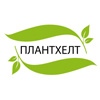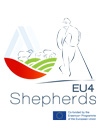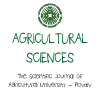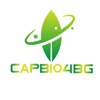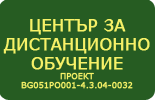Plant Biotechnology
|
Course title: |
Plant Biotechnology |
|
|
Course code: |
LGPLB |
|
|
ECTS: |
3 |
|
|
In-class hours |
Lectures: |
15 |
|
Laboratory work/Tutorials: |
15 |
|
|
Self-preparation hours |
Practical training: |
- |
|
Other: |
45 |
|
|
Total hours: |
75 |
|
|
Language: |
English |
|
|
Study cycle: |
Bachelor |
|
|
Semester: |
Summer |
|
|
Faculty: |
Faculty of Horticulture and Viticulture |
|
|
Name of the lecturer(s): |
Assoc. Prof. Svetla Yancheva, PhD |
|
|
Mode of delivery: |
Face-to-face, distance learning or a combination of both |
|
|
Prerequisites: |
Basic knowledge in genetics, plant biochemistry and physiology is required. Good understanding of plant-pathogen interactions and plant stress responses is beneficial to acquiring the subject in full. |
|
|
Learning outcomes of the course unit: |
The discipline “Plant Biotechnology” will give theoretical and practical knowledge in the field of in vitro cultural techniques and genetic engineering. The educational program includes the basic technologies for in vitro propagation and production of pathogen-free plant material, and application of in vitro methods in the plant breeding - embryo rescue, somatic embryo and organogenesis, protoplast and cell cultures, somaclonal variation, anther cultures, cell mutagenesis and cell selection, genetic transformation and methods for GMO analysis. Based on the courses of botany, genetics, plant physiology, biochemistry and microbiology, all these titles aim to the development of the biological and agronomical knowledge of the students. |
|
|
Course contents: |
1. Introduction to Plant Biotechnology. 2. Nutritional media. Basal culture media – types and components. 3. Plant Growth Regulators. Plant hormones. Action and Application 4. Plant material for in vitro cultivation, donor plants, explants. 5. Factors affecting in vitro cultivation and plant development. 6. Micropropagation. Meristem culture. Methods for virus-free plant material production. 7. Cryopreservation of plant cells and tissues. Recovery of plants. Gene banks. 8. Totipotency, dedifferentiation and differentiation. Callus. Plant regeneration 9. Somatic embryogenesis. 10. Organogenesis and factors affecting plant regeneration efficiency. 11. Embryo culture and embryo rescue. 12. Haploid cultures. Anther and microspore cultures. Andro- and gynogenesis. 13. Cellular and suspension cultures. Secondary metabolites and in vitro selection. 14. Genetic transformation. Methods for gene transfer. Ti-plasmid and Agrobacterium tumefaciens mediated gene transfer. 15. Direct methods for gene transfer. Biolistic and electroporation. Analysis and control of GMO. |
|
|
Recommended or required reading: |
1. Atanas Atanasov. - Biotechnology in Agriculture, 1988, Zemizdat, Sofia. 2. Velcheva M., Svetleva D. - A Handbook of Plant Biotechnology, 2002, Academic Publishing House of Agricultural University, Plovdiv. 3. Arteca R., 1996. Plant growth substances – Principles and applications, New York, Chapman& Hall; 4. Nickell L., 1982. Plant growth regulators – Agricultural Uses. Springer-verlag Berlin Heidelberg New York; 5. Molecular Biology of the Cell. B. Alberts at al., 1983, 6. Molecular Biology of the Cell. B. Alberts at al., 1986. vol. 2. New Yourk, London. 7. Molecular Biology of the Cell. B. Alberts at al., 1986. vоl 3. 8. Plant Cell, Tissue and Organ Culture, Springer Netherlands, http://www.springerlink.com 9. Plant Cell Reports, Springer Netherlands, http://www.springerlink.com 10. Plant Science, ELSEVIER, http://www.elsevier.com |
|
|
Planned learning activities and teaching methods: |
The course includes the following mandatory components: lectures, laboratory work, seminars, as well as student self-preparation. The lectures and laboratory practical works are supported by extensive literature and material basis. The lectures are delivered by means of PowerPoint presentations. The seminars take the form of a discussion between the students and the lecturer, with reference to pre-selected topics |
|
|
Assessment methods and criteria: |
The course ends with a written examination. The latter includes a pre-defined set of questions, which is drawn from the course material. The grading will conform to the 6-grade system. The results will be published no later than 2 weeks after the exam. |
|
 - Събития по случай 80-я юбилей на АУ
- Събития по случай 80-я юбилей на АУ
